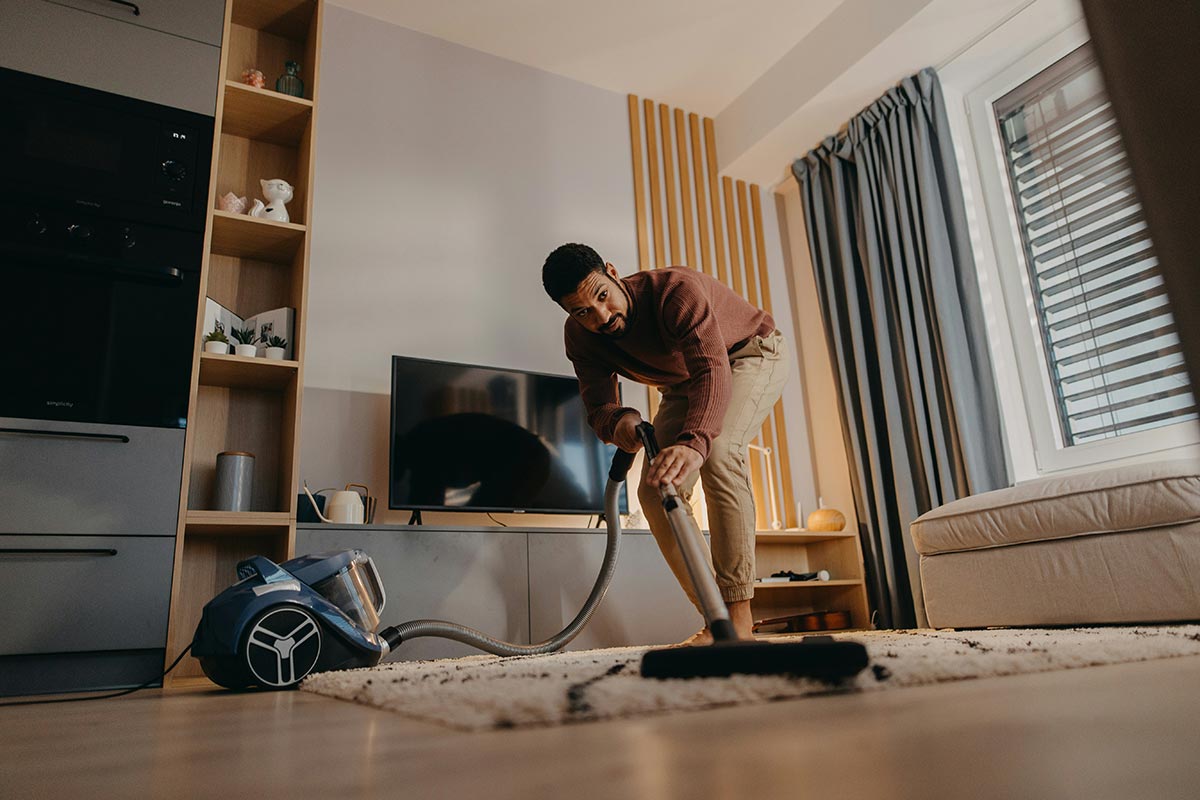
For millions of Americans, recovery is a fact of life. Today, 48.7 million Americans qualify for a substance use disorder diagnosis. That means getting help in the form of therapy, counseling, and long-term assistance with recovery. For many of us, it also means changing how we live – whether immediately as we leave rehab or as part of ongoing recovery. For example, one of the primary goals of attending an inpatient rehabilitation program is to benefit from structure in the form of healthy meals, wake-up and bedtime, regular exercise, and contact with people in a way that promotes physical and mental health.
Extending those practices to your daily life means taking the time to build new habits, to create structure for yourself and to invest in routines that allow you to do these things more easily.
What is a Ritual or Routine?
For most of us, when we think about the term “ritual” brings to mind something like a religious ceremony. That’s true in the truest sense of the word, where ritual is heavily linked to tradition, the sacred, and to ceremony. In the day-to-day sense, it’s linked to activities that you do every day, until they become part of your life.
For example:
- Bedtime ritual – Turning off your screens an hour before bed and reading a book or meditating and then going to bed at about the same time every day.
- Wake-up ritual – Waking up at about the same time every day, showering and brushing your teeth, taking 15 minutes to meditate, preparing breakfast and cleaning up, and then going for a walk before you start your commute to work
Rituals involve repetition, steps that you follow after each other, and things that you do together. So, a routine is something like going to the gym 5 days a week or going to bed at about the same time every day. A ritual is putting together a series of routines, like turning off all of your devices, taking 15 minutes to clean up, spending half an hour meditating, and then reading in bed till you fall asleep.
If you’re in recovery, routines and rituals can add a lot to your life. Let’s take a look:

1. Establishing Structure and Stability
Structure and stability are two of the most important parts of giving yourself a firm foundation to recover from. Having structure means you know what to expect and when, can reduce feelings of anxiety, and can create a foundation of stability. Of course, knowing you’ll be doing the same things every day can also create a sense of boredom, especially if you’re accustomed to a rollercoaster lifestyle. You’ll need balance. Still, creating stability means establishing feelings of normalcy, creating consistency in doing things that are healthy for you, and reducing your propensity towards impulsive behaviors.
Having structure means you will expect to do things in a certain way, and you know that you can be relied on to do them. For example, you know you will wake up feeling rested because you know you will go to bed on time. You know you will have a good meal when you get home because you know you will cook it. You know you will go to therapy and get the help you need because you always do. It’s about establishing to yourself that you are reliable and can be relied on to do the things that are good for you and make you feel good.
2. Replacing Negative Habits with Positive Ones
A second reason to work on building routines and rituals in recovery is that they can help you replace old and bad habits. Many of us come into recovery with bad habits like binge eating, drinking unhealthy amounts of caffeinated beverages, not sleeping enough, avoiding conflict or time with loved ones, etc. All of those behaviors will eventually make you feel tired, bad, lonely, and unfulfilled.
Introducing positive habits means replacing those “bad” habits. If you feel unfulfilled and like you do nothing with your day, you can build routines around investing time into hobbies to make things. If you feel anxious, you can invest time into meditation or journaling. You can add habits around exercise, so you feel good. You can make seeing your friends and loved ones part of your routine. Those good habits will push out the old ones. That’s especially true in places around self-care and caring for your space, because you won’t have space to not take care of your home if you have a ritual around cleaning up as part of your bedtime routine.
3. Rituals Offer Emotional Grounding and Mindfulness
Rituals are a set series of activities that you do on all or most days. Often, those will start out with difficulty, meaning you’ll need attention and effort to make yourself do them. Eventually, you’ll find a sense of calm and of peace in doing those things. You’ll be able to ground, to feel like you’re taking care of yourself, and to feel responsible for yourself and your wellbeing. That’s true whether the ritual is a morning routine of dusting a room in your home before you go to work or if it’s taking half an hour to meditate and to go over your emotions. You’ll have an activity that you can turn to restore a sense of normalcy – even if you’re experiencing cravings or deep anxiety. Finding a place to center and ground your emotions often just means doing things that feel normal and that put you back in control.
4. Creating a Sense of Achievement
Building routines and rituals means exercising self-control and making something happen. That might come after a long period of being unable to do so because your mental health was not in a good enough place for it. Starting small means that you can work on building success, willpower, and self-esteem around even small things. For example, you’ll have to struggle to build routines around simple activities like waking up at the same time every day – but eventually you might look up with a feeling of achievement because you did this thing you were struggling to do. Achieving routines will instill a sense of achievement. It will make you feel like you can do the things you work to be able to do. And, that will provide motivation and willpower to build towards bigger achievements including staying sober.
Get Your Questions Answered
Our expert & caring staff on site are available 24/7. Call us today.
5. Improving Mental and Physical Health

Building routines normally means putting effort into your physical and mental health. Daily routines can help people to feel more stable and can reduce stress. For example, people who invest time into routines around cooking, self-care, and relaxation feel less bored and more in control of their lives at home – despite spending the same amount of time at home.
Chances are high that your home routines will also invest your time into exercise, nutrition, getting enough sleep, and overall physical health. That will make you feel better, which will give you a better threshold to stay clean and sober. Better physical health boosts your mood, your energy levels, and makes you feel better. That will help.
6. Supporting Long-term Recovery
Recovery is a journey, and, chances are, you’ll be in recovery for the rest of your life. You’ll need consistent effort to keep your life on the right track. In fact, if you have a history of negative patterns you’ll actively have to push for healthy ones not to slip back into those negative patterns. For example, if you normally end up feeling bad or lonely which drives you to substance use, you’ll want to push for routines around good social contact and support networks. If you end up feeling bad because you don’t sleep enough or take care of yourself, you’ll want routines around self-care.
Getting Started
It’s important to start small. Unless you have help, don’t bite off more than you can chew. Begin with a few key routines and build on those as those routines start becoming easier. For example, set a regular bedtime and wake up time and when you get the hang of that, start planning meals and doing food-prep in advance. Gradually build more structure into your day, don’t do everything at once.
Here, you’ll also want to make sure that you stay consistent. It’s more important to be able to go for a 15-minute walk every day than it is to go for a 2-hour run once a week. It’s more important to be able to put all your prepared food into plastic tubs you can throw out than to not cook healthy food because you can’t do the dishes.
It’s also important to have milestones, to celebrate progress, and to recognize as you achieve the things you want to achieve. Plus, if you need help, it’s there. Whether that means looking into rehab and full therapy and support alongside structure and routines or into moving into a sober living home, where you’ll get assistance with routines and rituals like wakeup and bedtime and mealtimes, is up to you. The important thing is that you know that help is there and that you can lean on it if you’re not making progress on your own.
Establishing consistent habits can provide structure, promote healing, and foster a sense of stability. Whether it’s a morning meditation, a daily gratitude journal, or regular check-ins with supportive friends, these practices can make a world of difference. Start today—small steps lead to big changes! Your journey matters; let’s create a brighter future together.






